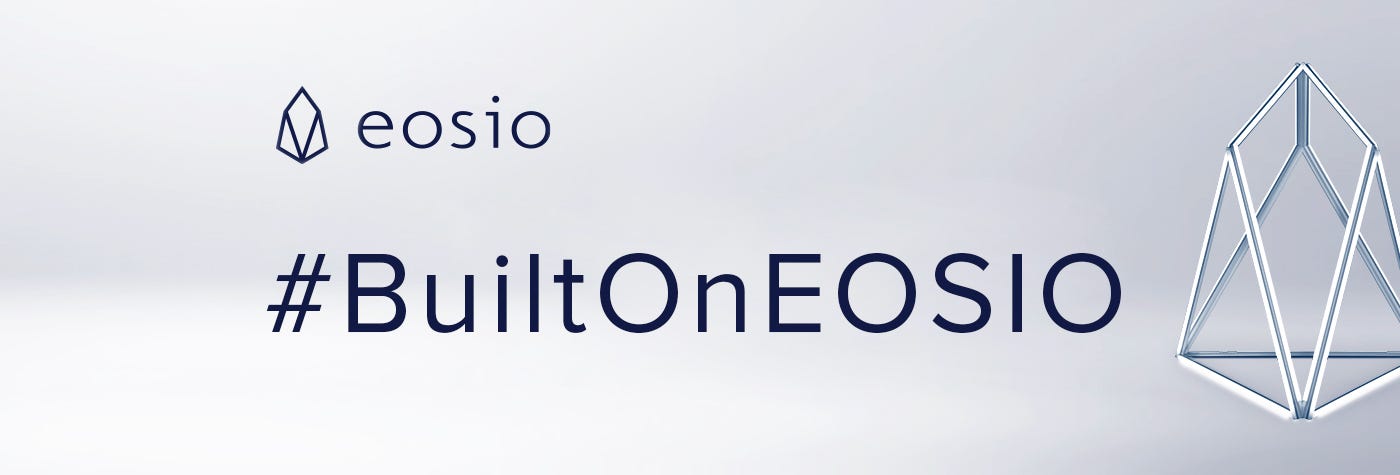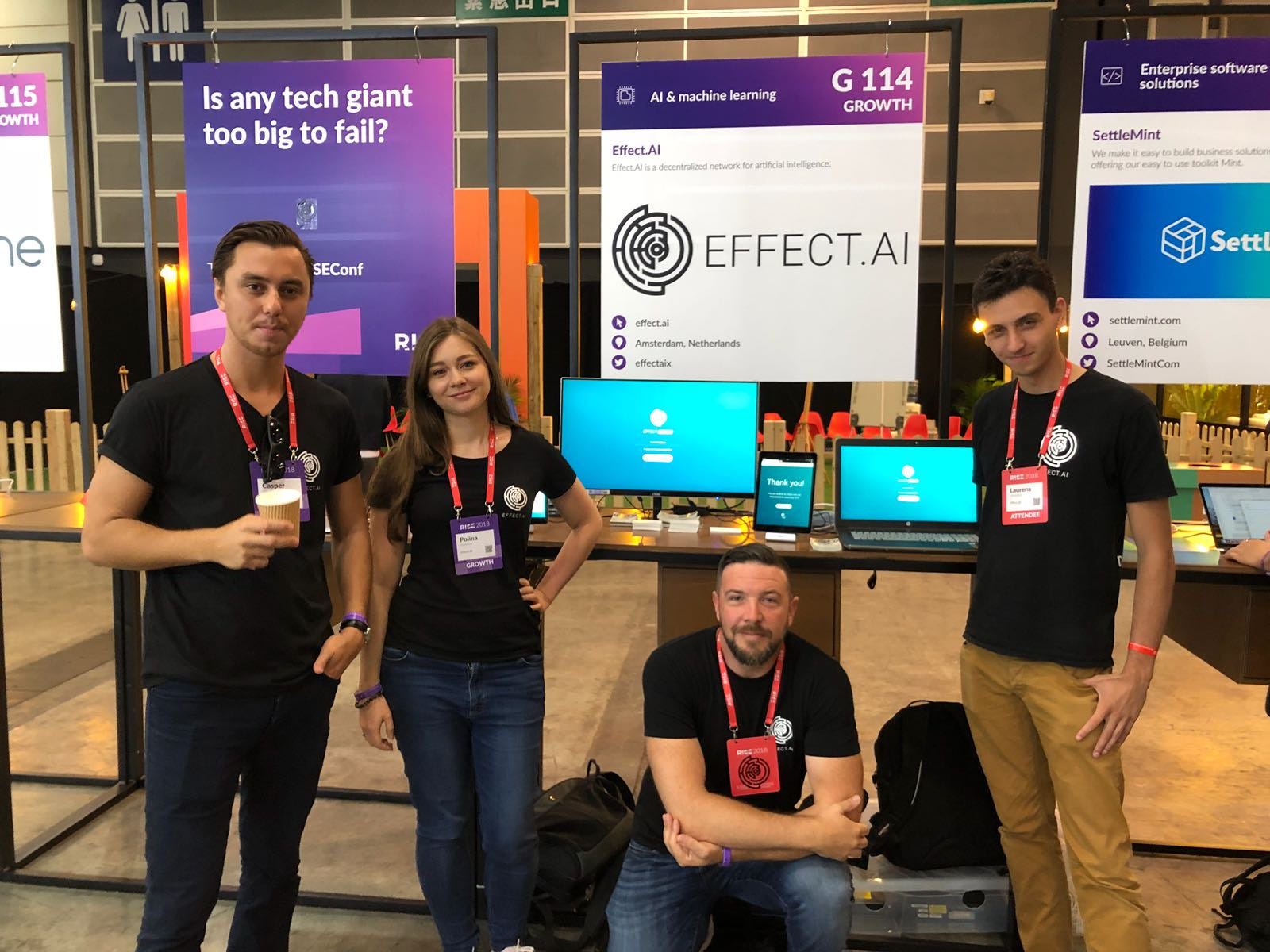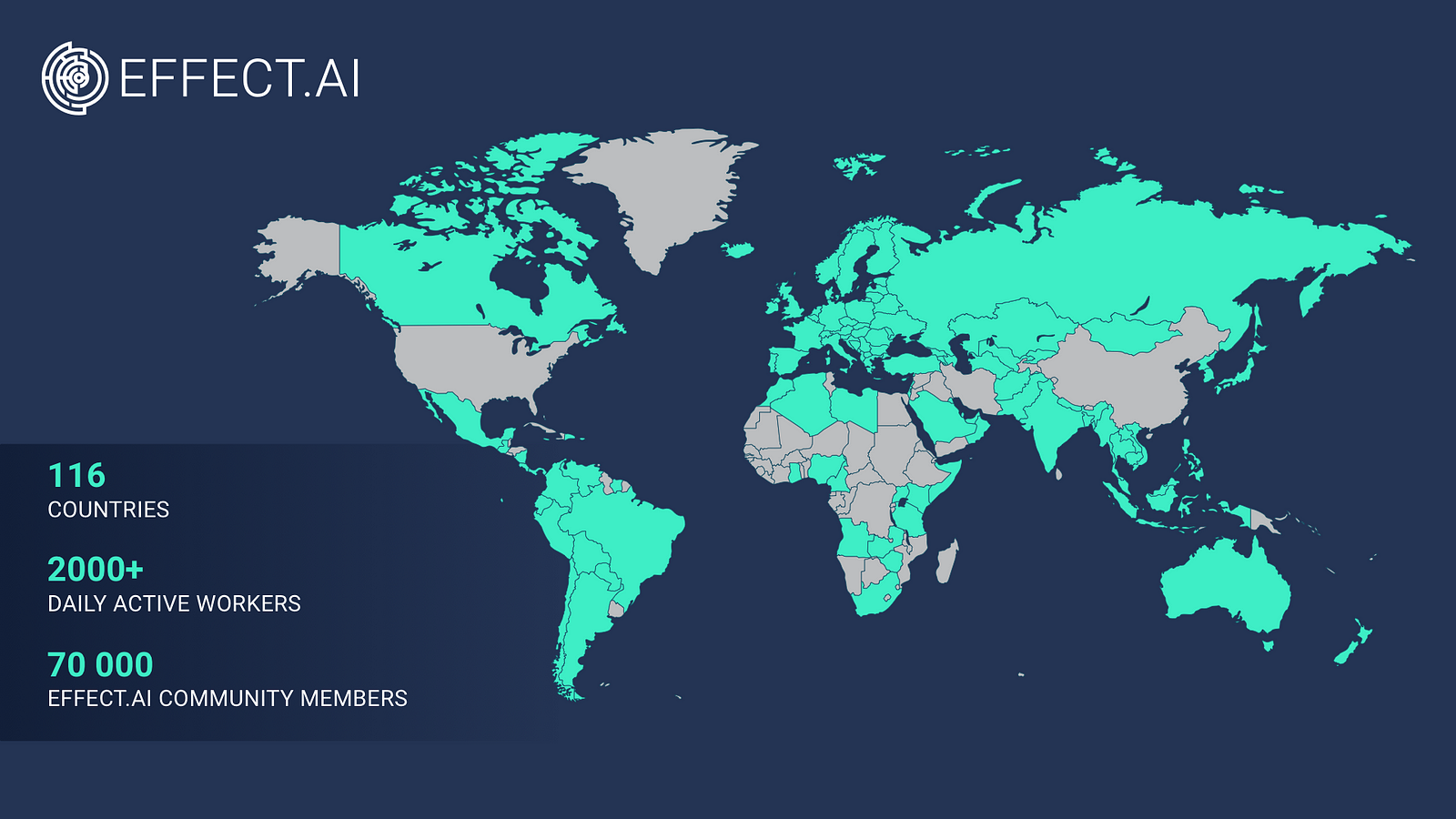
译文/Translated:
2016年AlphaGo和李世石的传奇围棋之战中,谷歌DeepMind在这款产品打败了获得18次世界冠军的李世石,这是计算机首次打败围棋九段专家,从那以后,全世界都为人工智能的力量深深折服。机器学习既迷人又令人敬畏,它能让彻底改善人类生活,不管是在自然语言习得、生物信息、或者信用卡欺诈监测方面。然而,虽然AI有这么多明显的好处,但它还没被各企业广泛使用。实际上,麦肯锡一份调查报告显示,只有21%的企业已经把AI融入他们的业务中,其中大多数还是在服务运营和产品开发等领域。导致这个现象最重要的理由包括:缺少AI人才和缺少支持实施AI的技术设备。到目前位置,只有科技领域的大企业能够开发出稳定的市场化AI解决方案,但其范围不过局限在亚马逊的Alexa,谷歌的TensorFlow和苹果的Siri。
小公司想找到质量训练数据来构建AI算法时他们是处于严重劣势的,意识到这点之后,Chris Dawe和其创始团队成员Jesse Eisses和Lauren Verspeek决定要创建一个去中心化的模型来注释数据,其目的是帮助小公司启动自己的AI项目。就这样,Effect.AI诞生了,【它是】“一个开放、民主和去中心化的AI网络”。具体来说,团队意识到该网络的基础是全球性的微任务工作集合,它将执行机器学习任务,如数据注释、情感分析和完成调查——和亚马逊的Mechanical Turk(MTurk)一样,市场环境有利于AI解决方案和服务的交流,这也支持了Effect. AI的发展。Effect.AI是MTurk的区块链版本,它能让开发者构建AI算法并从中获益,同时它会提供一个分布式的“全球超级电脑”,为TEN协议构建的GPU重型深度学习框架提供支持,这个协议让是一种让任何人都能在网络上开发自己的AI服务的智能合约和算法堆栈。

因为区块链和AI这两种新兴技术在未来30年内都在全球经济发展上都有巨大的潜能,所以Dawe, Eissens和Verspeek能够发现这两种技术上的联系实在太正常了。尤其是,预计2030年,AI能够给全球市场带来13万亿美元的财富,而预计2027年,区块链相关的服务将占到全球GDP的10%。同时,只有区块链能够解决目前采用AI技术存在的几大难题:因为区块链网络带来去中心化的AI所有权和使用权,因此它能打开新的大型数据注释集池。同时,这一特点还能通过分布式计算机帮助支持实施AI所需的复杂的技术基础架构。这两者都是GAFA在人工智能开发方面的垄断优势。比如,因为在去中心化的微任务平台(所谓Effect Force)上没有中间人,所以其注册员工可以因为即刻从请求服务方获得报酬。反过来,相比寻求亚马逊、谷歌或者苹果的AI服务,这些服务寻求方将能通过更低廉的价格获得AI算法和解决方案。
在过去短短18个月内,Effect Newwork上已经执行了两百多万条数据注释,其中包括使用NLP的公司(如聊天机器人、翻译、情感分析)和计算机视觉(如汽车、图像标记)。Effect.AI团队已经和联合国及新加坡政府合作完成了几个试点项目,但它还有其它大胆的计划来获得全球影响。他们正在和联合国合作,在格鲁吉亚建立一个社会影响中心,其目的是“(通过招募当地员工到’Effect Force’平台上的微任务),给[发展中国家中]需要找工作的人提供就业机会,让他们能够自学并做一些有意义和影响的事情。”从Effect. AI一月的公报来看,这次合作其中一个目标是鼓励联合国“使用Effect Force来丰富和构建数据,以解决格鲁吉亚的紧迫问题,如灾害/洪水预测和救灾、可持续生活、以及其它联合国特别关注的该地区问题”。同样,Effect Force在为新加坡的信息通信媒体发展管理局(IMDA)提供地理测绘项目所需的劳动,这将需要“Effect Force员工从卫星图像中识别和分类地理细节”。因此,这些项目彰显了去中心化、基于区块链的AI系统有能力加快人道主义援助和政府的发展。
2019年2月21日,Effect.AI做出了一个里程碑意义的决定——它正式从NEO协议转移到EOSIO协议。想看看任何战略转变需要的支持,那么到底是什么促使团队做出转移的决定呢?“很简单,现阶段,NEO不适合建立像我们这样复杂的网络,”Dawe说。“但是,EOS区块链给我们提供了一个更强大的方案,它的基础设施可以规模化,它易于迭代,它速度快,它安全,它有高TPS,而且,它还有一个令人惊叹的社区。”

创始团队在2018年的Block.one伦敦EOS黑客马拉松担当导师,他们觉得社区的支持非常惊人。“我们[在黑客马拉松上]感受到EOS社区的力量和积极的氛围,这个经济更加坚定了我们建立在EOSIO上的决定,”Dawe补充说,“当我们正式宣布要把项目转移到EOSIO上时,社区的反应令人难以置信。我们肯定从EOS开发人人员和社区成员那里收到了至少200多条信息,他们欢迎我们加入社区,给了我们极大的支持。”而且他们也应该这么做,因为Effect.AI团队正在做一个有价值、有创新的事业:通过区块链基础设施让AI走向世界,不管是对于科技界、企业界还是政府来说。
更多信息请点击https://effect.ai
关注我们的EOSIO热点系列,我们会介绍在我们平台上建立的一些非常优秀的项目。如果您想和我们分享您的项目,请发邮件到spotlight@block.one.
–开发者关系团队
免责声明
软件公司Block.one是EOSIO软件的生产者,该软件是一个免费、开源的协议。该软件可以在其它东西的辅助之下帮助用户启动区块链或者其它各类特征的去中心化应用。更多信息,请访问https://github.com/eosio。对于任何想在未来可能采用或应用的任何版本的EOSIO平台担任区块生产者的公司,Block.one都不会给予任何资金支持。
Block.one自己不会开展任何基于EOSIO软件的初始公链。第三方,社区,和/或希望成为区块生产者的公司,的唯一责任是以他们选择的任意方式、任意特点、和/或提供的任意服务采用和应用EOSIO软件。Block.one不能保证任何人都会采用或实施这些特点或提供这些服务,也不保证EOS.IO软件会以任何形式被采用和实施。
Block.one不为任何第三方或它的产品/服务背书,即使本文提到了它们。Block.one对链接提到的任何内容不负责。
请注意本文件表达的仅仅是Block.one的设想,并非任何保证。尽管我们努力让我们的设想成真,但上述的所有内容都可能因为Block.one自身的判断而改变。我们把这称为“前瞻性声明”,其中包括了本文所指的所有声明,而不是历史事实说明,如关于Block.one的商业策略、计划、前景、发展和目标的说明。上述声明仅仅是预计,反映的是Block.one当下的观点和关于未来事件的预期,上述声明基于假设,会受风险、不确定性和随时变动的影响。
我们在快速变化的环境中运营。新的风险随时会出现。考虑到这些风险和不确定性,请您注意不要完全依赖这些前瞻性声明。可能导致实际结果、表现和情况和这些前瞻性声明产生巨大差异的因素包括但不限于:市场波动性;资本、金融和人事长期充足与否;产品接受度;任何新产品或科技的商业成功;竞争;政府调控和法律;整体经济、市场和商业环境。
Block.one发布的所有声明仅适用于其发布的时间,Block.one没有任何责任,也明确表示不承担任何责任,更新或修改其前瞻性说明,不管是因为出现新信息、后续事件还是其它情况。这里包括技术、金融、投资、法律或其它方面的建议,不管是从广义上的还是涉及到任何特定的情况和用途。在应用或者利用本文所提到的内容之前咨询相关领域的专家。
这里提到的所有想法和信息都是作者本人提出的,不一定代表Block.one或Block.one员工的立场、观点和建议。
原文/Original:
Since the legendary Go match between AlphaGo and Lee Sedol in 2016, when Google’s DeepMind product beat the 18-time world champion — marking the first time a computer beats a 9-dan professional, the world has been all the more captivated by the power of artificial intelligence. At once fascinating and formidable, machine learning has the potential to radically change human lives for the better, whether it be through aspects such as natural language processing, bioinformatics, or credit card fraud detection. For its many obvious benefits, however, AI technology has yet to see mass adoption by businesses across the board. In fact, only 21 percent of enterprises surveyed in a McKinsey report say that they have incorporated AI in parts of their business, mostly in areas such as service operations and product development. Among the top ranked reasons for this include a lack of AI talent and a lack of technological infrastructure to support AI implementation. So far, only the big players in the tech space have been able to develop solid go-to-market AI solutions, with the gamut not extending much further beyond Amazon’s Alexa, Google’s TensorFlow, and Apple’s Siri.
Realizing that small companies are placed at an acute disadvantage when it comes to finding quality training data to build AI algorithms, Chris Dawe and his founding team members Jesse Eisses and Lauren Verspeek decided to create a decentralized model for data annotations with the aim of helping companies kickstart their AI initiatives. With that, Effect.AI was born as “an open, democratic & decentralized network for artificial intelligence.” Specifically, the team recognized that the foundation of this network is a global microtasking workforce, one that will carry out machine learning tasks such as data annotation, sentiment analysis and survey completion — supported by a marketplace that facilitates the exchange of AI solutions and services, much like Amazon’s Mechanical Turk (MTurk). Offering a blockchain alternative to MTurk, Effect.AI helps developers build and monetize AI algorithms, all the while providing a distributed ‘global supercomputer’ that can power the GPU-heavy deep learning frameworks built on top of the TEN protocol, which is a tech stack of smart contracts and algorithms that allows anyone to build their own AI services on the network.

It is indeed timely that Dawe, Eissens and Verspeek have identified this natural synergy between blockchain and artificial intelligence, given that both forms of emerging technology possess huge potential to grow global economic activity in the next three decades. AI in particular is forecasted to deliver an additional USD 13 trillion to the world market by 2030, while blockchain-related services have been suggested to comprise 10 percent of global GDP by 2027. Blockchain is also uniquely positioned to address some of the biggest pain points in AI adoption at present: by allowing for the decentralized ownership of and access to AI, blockchain networks can open up new pools of large annotated datasets, as well as help power the complex technical infrastructure needed for AI implementation with distributed computation, both of which are aspects that have thus far given the likes of GAFA a monopolistic edge over AI development. For example, because there is no middleman involved in the decentralized microtasking platform (called ‘Effect Force’), its registered workers can receive instant payment from service requesters, who will in turn receive AI algorithms and solutions for a way lower price than if they were to engage Amazon, Google or Apple for AI services.
And over the span of just 18 months, more than 2 million data annotations have already been performed on the Effect Network, some of which are for companies working with NLP (e.g. chatbots, translations, sentiment analysis) and computer vision (e.g. automotive, image tagging). Having partnered with the United Nations and the Government of Singapore on several pilot projects, the Effect.AI team also has big, bold plans to make a global impact. In collaboration with the UN, they are now setting up a social impact hub in Georgia, which aims to “provide jobs to those [in developing countries] who need them (by enlisting local workers for the microtasking ‘Effect Force’ platform), allowing them to educate themselves and work on something that has meaning and impact”. According to Effect.AI’s January newsletter, one of the goals of this collaboration is to encourage the UN to “use Effect Force to enrich and structure data to solve pressing issues in Georgia, like disaster/flooding prediction and relief, sustainable living, and other matters the UN are closely monitoring in the region”. In a similar vein, ‘Effect Force’ is providing Singapore’s Info-communications Media Development Authority (IMDA) with the required labor for a geo-mapping project, which would entail “Effect Force workers identifying and categorizing geographic details from satellite images”. As such, these initiatives show that a decentralized, blockchain-based AI system has the power to accelerate developments in humanitarian aid and government.
On 21 February 2019, Effect.AI made a landmark decision to officially switch from the NEO protocol to EOSIO. Given the considerable costs that would have been involved in any strategic change, what motivated the team to nonetheless go ahead with the move? “It’s simple, building a network as complex as ours just does not work on NEO at the moment,” said Dawe. “The EOS blockchain, on the other hand, provides us with a more robust alternative, with its clearly scalable infrastructure, ability to easily iterate upon, speed, security, high TPS, and of course, its incredible community.”

Having participated in Block.one’s 2018 EOS London Hackathon as mentors, the founding team found the support to be overwhelming. “We felt the powerful strength and positivity of the EOS community [at the hackathon], and the experience solidified our decision to build on EOSIO,” added Dawe. “When we officially announced the migration of our project to EOSIO, the community response was unreal. We must have received over 200 messages from EOS developers and community members welcoming us and offering their support.” And as well they should, since the Effect.AI team is clearly working towards a worthy and innovative cause of making artificial intelligence more accessible to the world through blockchain infrastructure, whether it be for technologists, businesses or governments.
More information on Effect.AI available on https://effect.ai
Stay tuned to our EOSIO Spotlight series where we’ll highlight some of the truly exceptional projects being built on our platform. If you have a project you’d like to share with us, please email spotlight@block.one.
-Developer Relations team
Disclaimer
Block.one is a software company that is producing the EOSIO software as a free, open-source protocol. This software may, among other things, enable those who deploy it to launch a blockchain, or decentralized applications with various features. For more information, please visit https://github.com/eosio. Block.one does not provide financial support to anyone seeking to become a block producer on any version of the EOSIO platform that may be adopted or implemented.
Block.one will not be launching any of the initial public blockchains based on the EOSIO software. It will be the sole responsibility of third parties, the community, and/or those who wish to become block producers, to adopt and implement EOSIO in the manner they choose, with the features they choose, and/or providing the services they choose. Block.one does not guarantee that anyone will adopt or implement such features, or provide such services, or that the EOSIO software will be adopted and implemented in any way.
Block.one does not endorse any third party or its products or services, even if they are mentioned herein. Block.one is not responsible for any linked content or content provided by third parties, whether used directly or incorporated into this document.
Please note that the statements herein are an expression of Block.one’s vision, not a guarantee of anything. While we will try to make that vision come true, all aspects of it are subject to change in all respects at Block.one’s sole discretion. We call these “forward looking statements”, which includes statements in this document, other than statements of historical facts, such as statements regarding Block.one’s business strategy, plans, prospects, developments and objectives. These statements are only predictions and reflect Block.one’s current beliefs and expectations with respect to future events; they are based on assumptions and are subject to risk, uncertainties and change at any time.
We operate in a rapidly changing environment. New risks emerge from time to time. Given these risks and uncertainties, you are cautioned not to rely on these forward-looking statements. Actual results, performance or events may differ materially from what is predicted in the forward-looking statements. Some of the factors that could cause actual results, performance or events to differ materially from the forward-looking statements include, without limitation: market volatility; continued availability of capital, financing and personnel; product acceptance; the commercial success of any new products or technologies; competition; government regulation and laws; and general economic, market or business conditions.
All statements are valid only as of the date of first posting and Block.one is under no obligation to, and expressly disclaims any obligation to, update or alter any statements, whether as a result of new information, subsequent events or otherwise. Nothing herein constitutes technological, financial, investment, legal or other advice, either in general or with regard to any particular situation or implementation. Please consult with experts in appropriate areas before implementing or utilizing anything contained in this document.
The ideas and information expressed herein are solely those of the author and do not necessarily reflect the positions, views or advice of Block.one or any other employee of Block.one.
原文链接/Original URL: